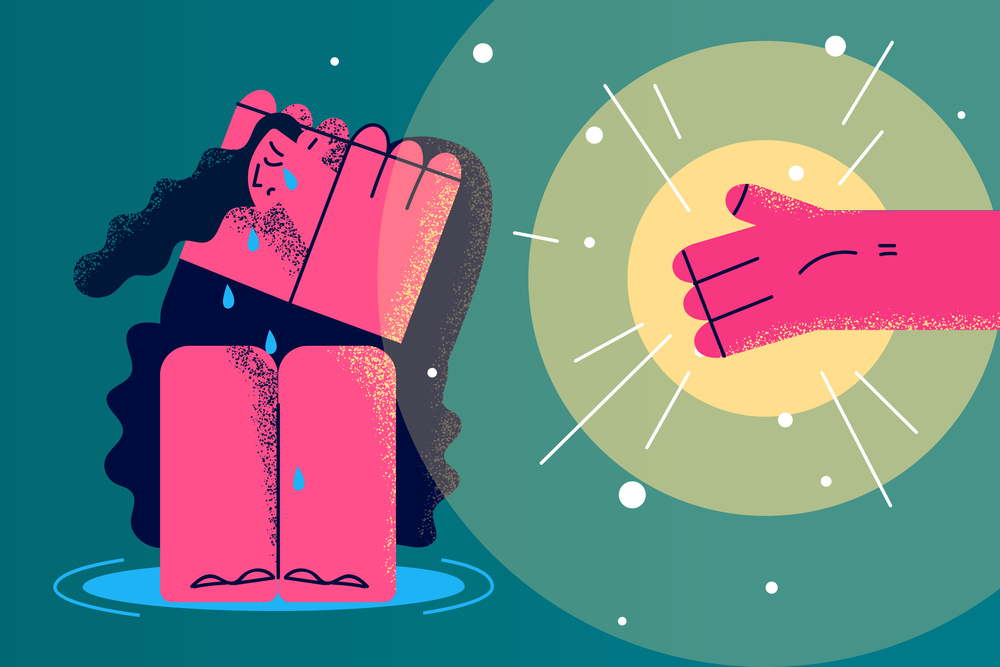In a new article published in the Behavior Therapist’s special issue on harms in Cognitive Behavioral therapies, Emily B. H. Treichler and Nev Jones embark on a crucial exploration of the harms faced by people with psychosis in the realm of psychological interventions.
Titled “Harm in Psychological Interventions for People With Psychosis: The Twin Arms of Disempowerment and Discrimination,” this piece challenges the psychology community to reevaluate their practices and beliefs regarding the treatment of psychosis.
Treichler of the VA San Diego Mental Illness Research, Education, and the University of California, San Diego, and Jones of the School of Social Work, University of Pittsburgh, acknowledge that people who experience psychosis confront a myriad of treatment-related harms stemming from both government policies and psychiatric interventions. However, they also shed light on the potential dangers lurking within the field of psychology and psychotherapy.
“This commentary calls on the psychology community to acknowledge past and contemporary harms, work to end practices that further marginalize and disempower clients with psychosis, and commit to collaboration, equity, and progressive practices,” they write.
“Throughout, we argue that stigma and discrimination towards people with psychosis remain pervasive and underlie each harm we describe; in particular, we emphasize deep-seated beliefs regarding clients’ ‘lack of insight’ and inability to be trusted with treatment-related decision-making. Ultimately, we hold that we will only move towards empowering and healing practices when psychology as a discipline, and psychologists as individuals, reckon with deep-seated prejudice.”
















As a sufferer of schizophrenia who has seen many psychologists over the decades I can honestly say that I have never been harmed by any of them. I say the same about psychotherapists. People with psychosis go through hell and because of that result of their many symptoms they often do not place huge expectations for a miracle cure on anyone or on any relationship. Due to schizophrenia it is almost impossible to get mental peace enough to form a proper relationship. Thus as a schizophrenia client I never landed such high expectations on the therapeutic relationship. I could understand just like most people can, that psychology is done by individuals and therefore individual gifts and drawbacks were a matter of course. There seems to be a debate that idolizes a notion of a perfect watertight ideal relationship. Almost a chatgp AI flawless presentation of ‘a human being’. It is starting to remind me of how the Established Church used to peer into the motley lives of young marrieds and give them rule books on how they should aspire to be making an impeccable relationship…since a wonky relationship is a path to evil sin. Biblical harms. I dont find it healthy or realistic or balanced to lead clients to expect their ordinary psychologist to work wonders. If anything psychology has been central to debunking the myth of the healing relationship. Psychology has been open about declaring itself bumble footed when it comes to having much to offer anyone. This getting to grips with how ordinary and disappointing most humans turn out to be becomes a deep healing. These days ‘the relationship’ is touted as a panacea. But this spawns a sence of entitlement to a recipe for perfection that is just unrealistic. The ideal marriage is a fantasy, unless you are very lucky. The ideal therapy marriage is also poppycock. Oddly enough the schizophrenia I have is like a terminal illness. The dying have no great expectations. And this is how the very psychotic see life clearly enough so that they are ready for the relationship falling to pieces.
Report comment
I still can’t read this entire research article, despite the fact my family gave $2000 to MiA last year. Do I need to give MiA a personal $20 donation now, via your non-501c3 donation system, in order to be allowed to read your research articles this year?
But I totally agree, “we will only move towards empowering and healing practices when psychology as a discipline, and psychologists as individuals, reckon with deep-seated prejudice.” Kudos to Nev and Emily for speaking the truth.
But pointing out my former psychologist’s belief system – that dreams are “psychosis” and distress caused by 9/11/2001 was “distress caused by a chemical imbalance” in my brain alone – which were, and still are, absolutely insane psychological belief systems … as is the psychological industry’s entire, scientifically “invalid” DSM “bible” billing belief system.
https://psychrights.org/2013/130429NIMHTransformingDiagnosis.htm
I do agree with Nev and Emily, “we will only move towards empowering and healing practices when psychology as a discipline, and psychologists as individuals, reckon with deep-seated prejudice.”
Report comment
Someone Else: Re your account with us: In fact, you are listed as a “lifetime donor” in our database thanks to your generosity, and you should have received emails telling you how to set up a donor login. And once you set it up, you can have your browser remember it, and it will log you in automatically. We’ll write you privately now to make sure this is fixed.
And sorry about the confusion here,
Report comment
The articles highlights some of the problems at present with how the mental health providers in the USA are not prepared to work with people who experience psychosis, and also the underlying issues regarding prejudice and discrimination. I would also like to point out that there are other approaches that provide successful treatment outcomes, beside cbt, mostly by understanding the very early trauma of the self, behind these individuals experiences. Authors such as Danielle Knafo, Michael Eigen, Michael Garrett, Francoise Davoine, Brian Matindale, just to name a few, who publish on their approaches, should have been included in this article!
Report comment